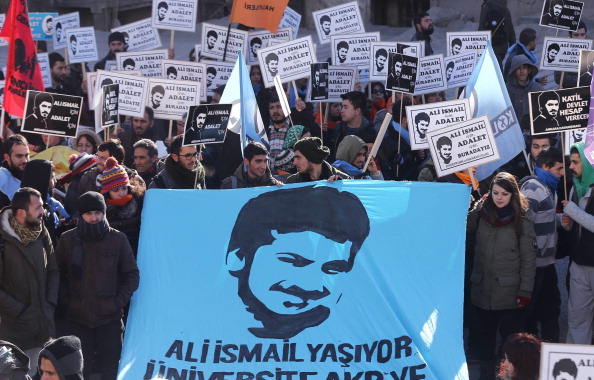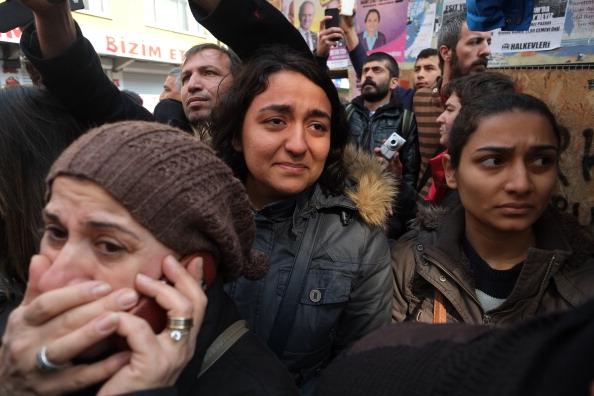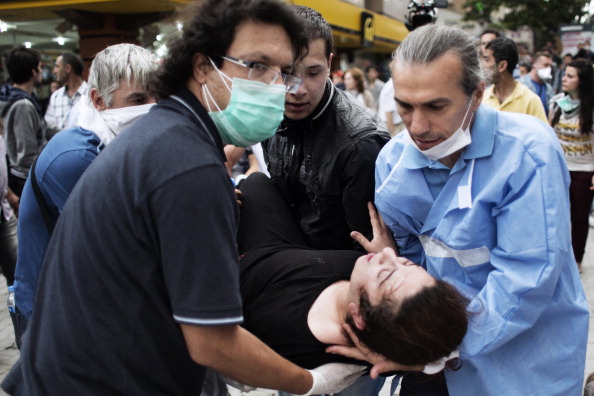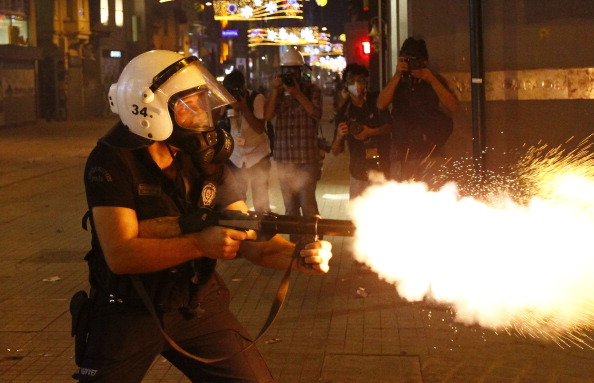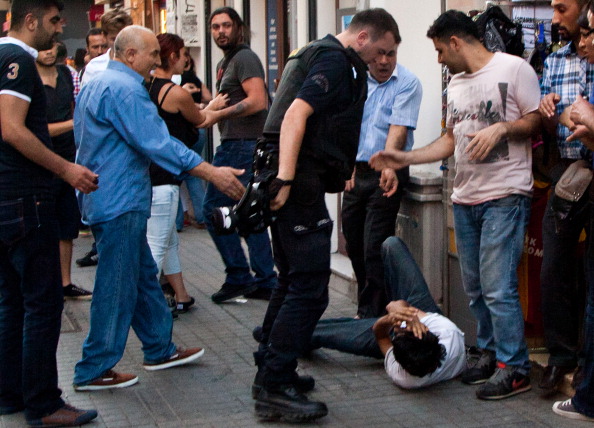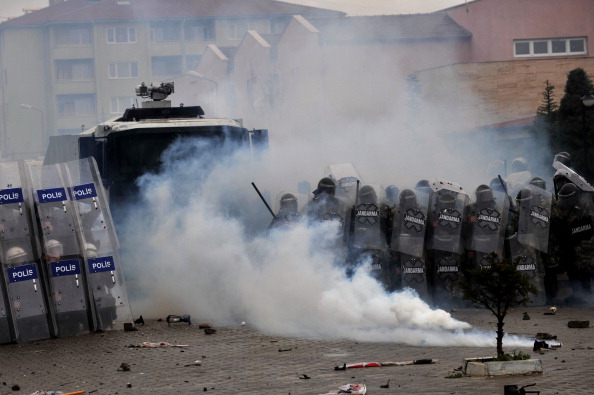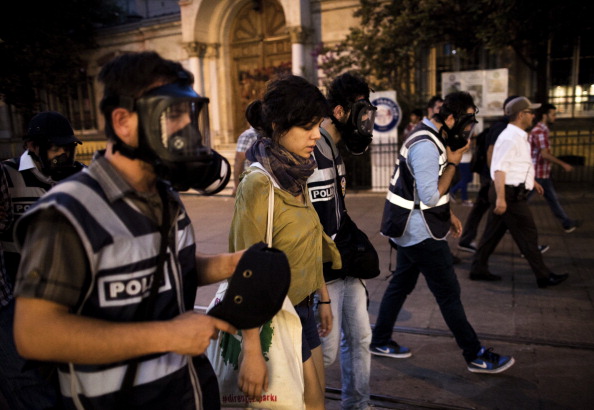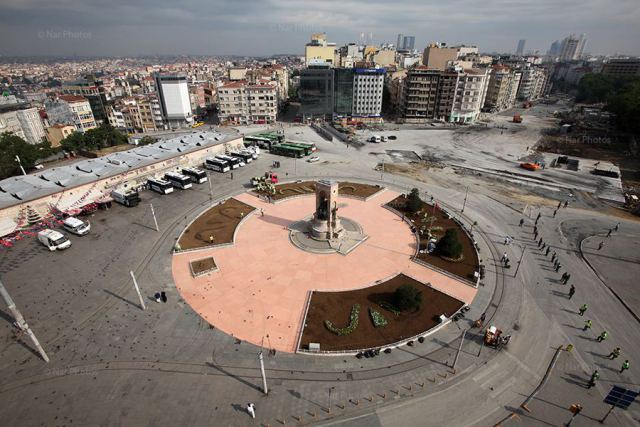
Taksim Square under police control today (Photo Courtesty: Ahmet Şık/ NarPhotos).
I [miss] the days I used social media to connect with my high school friends. In #istanbul, it’s only used to ask “are you safe” these days
So writes one of my friends in Istanbul today after a weekend of some of the most shocking police violence that Turkey has seen in years. It will take many days, weeks, and perhaps years to understand the full cost and ramifications of the storming of Taksim Square that occurred Saturday night.
We do not know yet, for example, how many were injured, but the promiscuous use of water cannon and tear gas against protesters, by-standers, journalists, and medical personnel suggests the numbers will be very large. There are additional reports, which I have not yet been able to confirm, of the use of plastic bullets. Tear gas was hurled into buildings like the Divan Hotel, where people sought refuge. Video footage shows a water cannon was directed at the inner courtyard of the German Hospital down the road from Taksim.
SEE THE REST OF THIS POST
